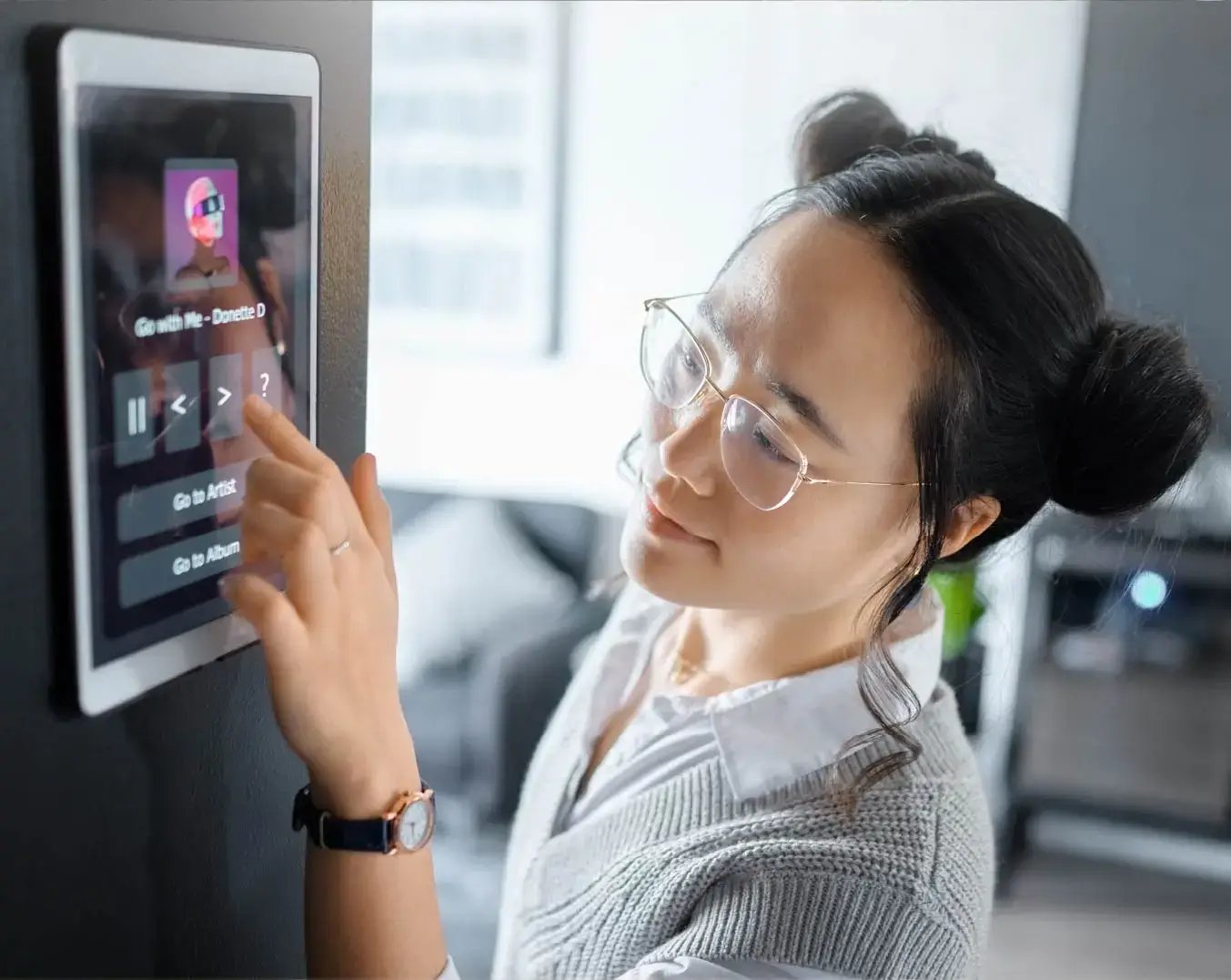If you haven't yet embraced hotel digital transformation, now's the time. The benefits range from enhancing the guest experience to making the operational processes smoother and more streamlined. The more you can incorporate digital tools into your business, the better for everyone involved.
Digital transformation also helps you stay competitive. Now, let's explore what digital transformation means for the hospitality industry and give you some ideas to put it into action.
Table of contents
What is hotel digital transformation?
Hotel digital transformation entails integrating tech into various aspects of your business. The goal is to enhance customer experience, streamline operations and remain competitive. You can automate tedious tasks, offer mobile check-in, or speed up check-in with kiosks or keyless entry. All of it results in a better guest journey, including improved connectivity, more efficiency, and a guest-centric hotel experience.
Before you implement any changes, develop a future-proof strategy. The key is to stay on top of emerging technologies and the ever-changing customer landscape. This ongoing process will shape your brand image and help increase your market share.

Why is digital transformation important in the hotel industry?
Digital transformation gives you a competitive edge and opportunities to drive more revenue. It also helps you improve operational efficiency and data collection, all while crafting stellar customer experiences.
Competitive advantage
What makes you stand out from your competitors? With every generation becoming more digitally literate, guest expectations change. Only tech-forward hotels can attract digitally minded guests. Embracing modern technology also helps you differentiate yourself from less digital-forward hotels and position yourself as an innovative hotel.
Driving more revenue
Revenue can be driven more easily through digital channels. To boost your earnings, leverage online marketing and the power of direct bookings. You can increase revenue opportunities through cross-selling, upselling and promoting add-on services via digital platforms.
Improved operational efficiency
Tired of Excel sheets and manual room assignments? Digital tools automate processes while cutting human error. With the evolution of property management systems, you can more efficiently manage reservations, housekeeping, inventory and staff communication. The result? Tremendous cost savings and more efficiency.
The smoother your internal processes are, the better the guest experience. They'll be able to check in quickly, buy upgrades, and book services through digital assistants or a virtual concierge.
Data collection
Data has become a goldmine of hospitality. Digital tools help you collect and analyze real-time data like guest behavior, preferences, and market trends. This way, you can optimize prices, tailor services and make data-driven decisions. And it's all seamlessly collected through your PMS and other digital tools.
Customer experience
Modern guests expect digital technology to be a part of their stay. They're used to online booking, mobile check-in, personalized recommendations, and smart room technology. To exceed guest expectations and increase their loyalty, focus on offering diverse digital options.

Top 6 ideas for hotel digital transformation
Now that you’ve understood what digital transformation is and why it’s so important, let’s look at some ideas you can implement in your property.
Check-in kiosks
Check-in kiosks bring many benefits to your hotel – the main ones being reduced stress for the front desk and saved time. Smother check-in and check-out are more convenient for guests, too. They can take the hotel experience into their own hands, pick the preferred services, cut room keys, and check in at their convenience.
Mobile technology
Modern guests want easy access to their reservations, discounts, and add-ons. Many also prefer to check in online and expect a digital concierge. Besides providing services around the clock, mobile technology also helps you to cut back on overnight staff. You can use it to control room ambiance by adjusting lighting and temperature.
Smart rooms
There are so many ways technology can enhance the in-room experience, from temperature control to in-room entertainment to voice commands. It lets you inform guests of hotel events and outside temperature, set alarms, and improve room comfort without involving staff.
Contactless technology
We’ve mentioned check-in kiosks that let guests cut their keys, but what about facial recognition? It’s safer and more convenient to remove the hassle of keeping track of hotel room keys. You can introduce contactless technology throughout the various stages of the guest journey – payments, room access, and check-in and check-out.
Cloud systems
Cloud-based PMS provides innumerable benefits. Better security, reduced overhead, improved efficiency, the ability to work from anywhere, real-time data, and much more. It unlocks smoother hotel operations, as many users can be connected at any given time while data syncs automatically, so you don’t risk losing information. A modern PMS also facilitates real-time collaboration and communication.
AI technology and chatbots
Implementing artificial intelligence will speed up your hotel's digital transformation. AI has several uses in the hospitality industry: hyperdynamic prices, data analysis, chatbots, personalized services, and trend predictions are just a few. It's becoming a convenient tool loved by hoteliers and guests.
Conclusion
We’ve discussed the importance of a digital-forward hotel experience and how your property can implement it. If you’re not already finding ways to integrate technology into the guest journey and your operations, it’s about time you started.
Digital transformation should be a continuously evolving process. The goal is to exceed guest expectations while improving internal processes and staff satisfaction. When done right, it can yield significant revenue growth and operational efficiency. As a digital hotel, you get a competitive edge that encourages guests to stay at your hotel.

Author
Eva Lacalle
Eva has over a decade of international experience in marketing, communication, events and digital marketing. When she's not at work, she's probably surfing, dancing, or exploring the world.

Essential hotel technology for general managers
Download now
Hospitality hot takes straight to your inbox


.webp)